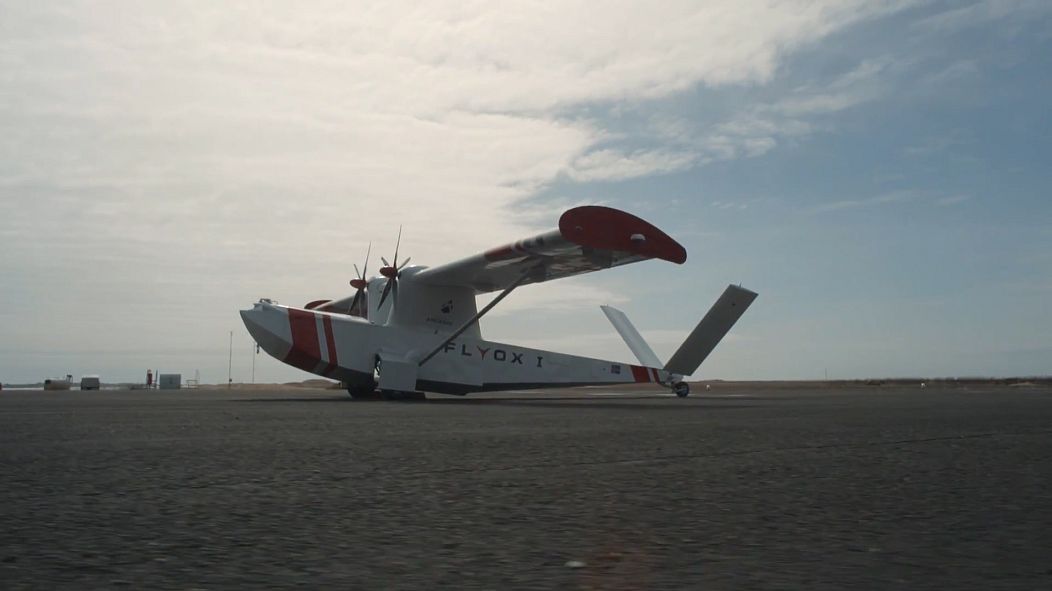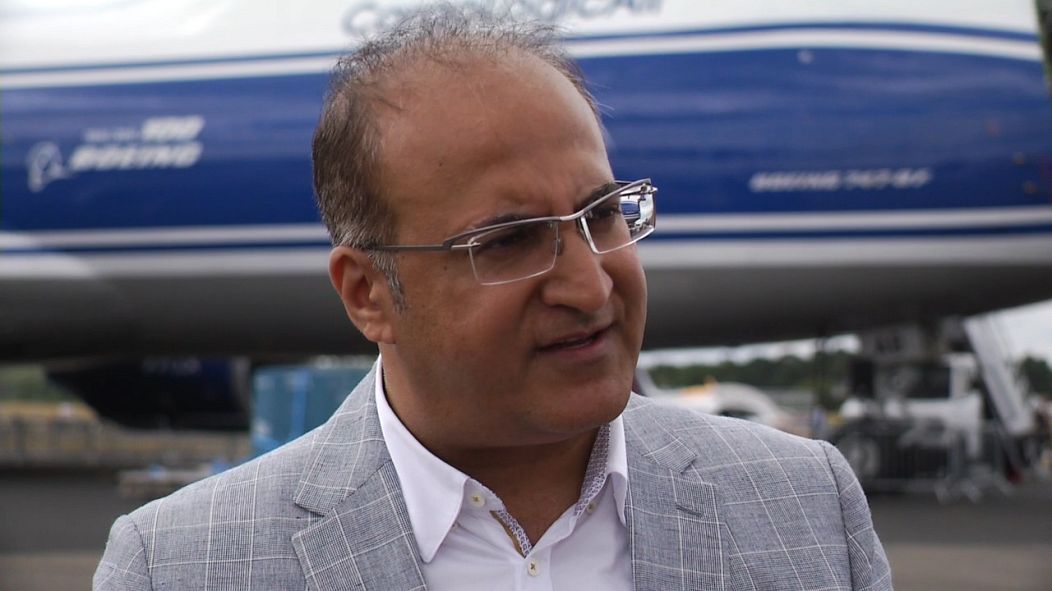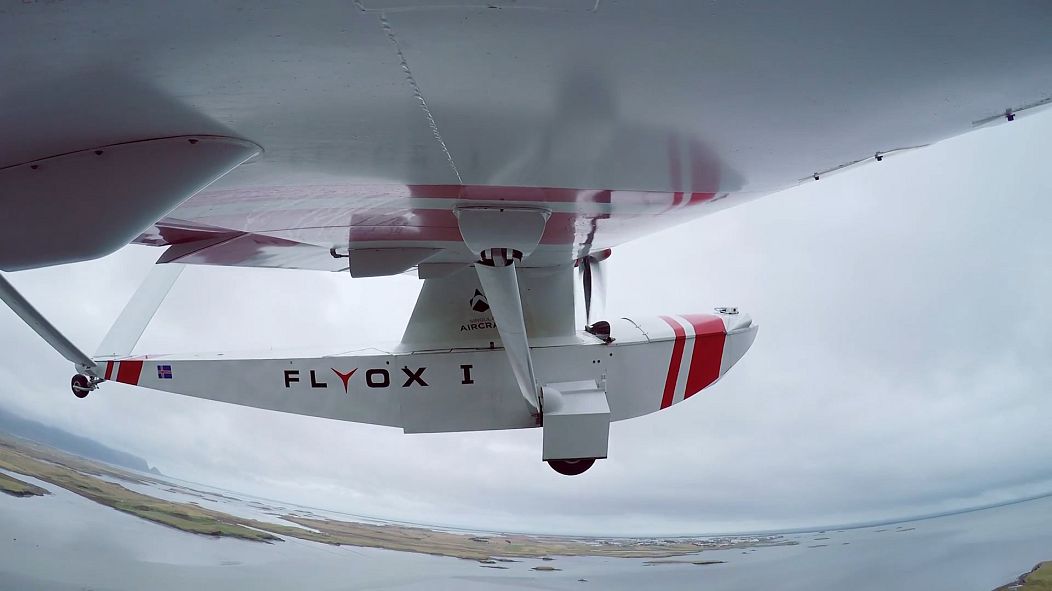Why is Europe still waiting for large-scale, Amazon-style drone deliveries?
A Kenyan cargo arline is aiming to be the first to provide a large-scale postal and medical delivery service in Africa, yet they cannot do the same in Europe - why?
Imagine not having a home address. How could you direct a taxi to your home? How could you receive clothes, gadgets and food that you have ordered online?
That’s the reality for millions of people in Africa. Unlike most, if not all of the western world, millions of households in many countries across the continent lack facilities for home delivery.
Particularly in Kenya, letterboxes are uncommon. Instead, citizens tend to use mail boxes stacked in post offices to receive their mail, or they pay an annual fee for a PO box address for which there can be long waiting lists.
“The biggest problem that we have in Africa is that nobody has a postal address, so how do you deliver something to a person in Africa who does not have an address? Where do you deliver it to?” says Sanjeev Gadhia, an entrepreneur from Nairobi who led a public talk on the issue at the Farnborough International Airshow in Hampshire, southern England.
“So what we’re going to do with mobile technology, and drone technology, is we would actually make his mobile phone his address, and no matter where he is in Kenya or for that matter, where he is in Africa, we would actually make sure that we would be able to reach to him.”
Gadhia is the founder and CEO of Nairobi-based Astral Aviation, the largest private cargo carrier in eastern Africa which is looking to be first to launch large-scale cargo drone operations on the continent.
And their journey has already begun: In September, the company will kick-start a three-month pilot project to provide Amazon-style drone deliveries to the public in collaboration with the national Post Office of Kenya.
“There are many remote regions in Africa, and the ultimate objective of any cargo airline is to deliver goods to the customer, and that’s what we plan to do with our new technology – our cargo drones,” says Gadhia.
While in Farnborough, the entrepreneur has been scouting for drone makers who could one day provide vehicles for his fleet.
Once in force, the aircrafts would be controlled by ground operators trained by Astral Aviation’s own drone pilot Academy in Kenya, the first of its kind in the country.
But Gadhia’s goal is not limited to delivering mail to Africans living in secluded areas. He is planning to use the vehicles for crop spraying, to surveil wildlife reserves that are the target of poaching, and to deliver blood, organs, and vaccines to individuals with viral diseases.
“If you have an ebola crisis, how do you get the vaccines to the population in the shortest and most cost-effective way? And that is by the use of drones,” says Gadhia.
“You don’t want any human connection or human interface with the affected population, so drones could carry vaccines in very difficult situations.”
So why is Europe still waiting to benefit from large-scale, continental, super-speed parcel and medical deliveries?
Unfortunately, strict rules governing civil airspace over Europe means the continent is lagging behind the United States and Africa in the race to adopt drone technology.
Regulations governing unmanned aerial vehicles in the bloc vary between countries and EU-wide rules are still being drawn up, so unless they adhere to specific standards, drones are only allowed to fly in segregated airspace to prevent collisions with civilian aircraft.
“Regulators are playing catchup with a lot of things that are going on in the drone and autonomous vehicle industry, and so for regulators, it’s a balancing act between risk and reward,” says Anthony Venetz, managing director of aviation safety consultancy Across Safety.
“They want to have benefits of this kind of industry because it’s good for the economy, you can do things you couldn’t do before or were too expensive to do before, but you’ve got to balance that against public safety.”
As for why Africa is ahead of the curve, it is simply because it is less developed and regulators are keen on experimenting with new technology, Gadhia says.
“African airspace is not as busy as many Western airspaces, so you have corridors that can be set aside for drone technology. So we believe that we can start off the journey with drones in Africa and continue the journey into Europe and the United States when the time is right.”
Drones undoubtedly have their benefits: They can fly where planes typically can’t – in small, confined spaces – they can hover close to the ground, and they do not require a certified human pilot to fly - but what if they end up in the wrong hands?
“A drone could actually fly at night and it could carry ammunition which could be used in a terrorist-related activity,” acknowledges Gadhia. “It is a reality … so we have to work very closely with the [Kenyan] Ministry of Defence so that they know what we are doing.”













